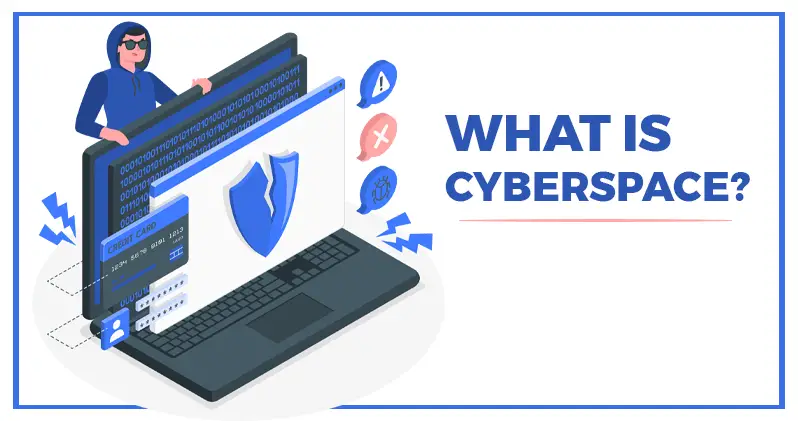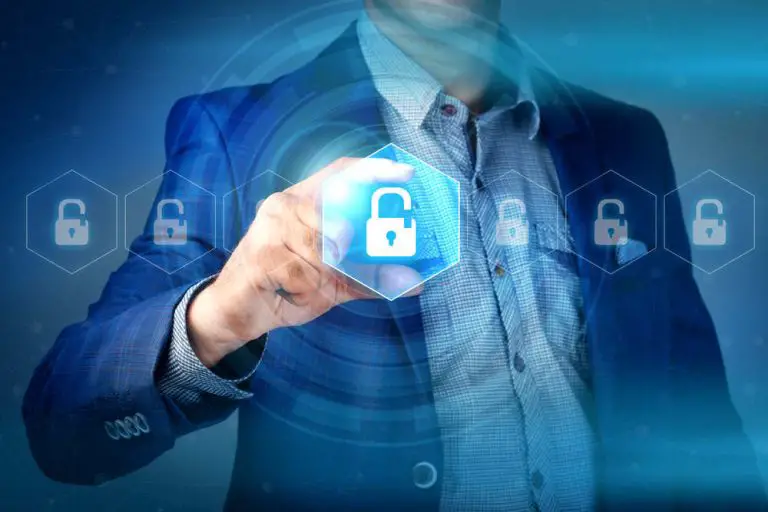Two decades ago, the term “cyberspace” sounded like something out of a science fiction film. In the second decade of the twenty-first century, cyberspace is likely to be where the majority of us spend the majority of our time. It has become an inseparable part of our lives. In this article, we will look at what defines cyberspace and why laws are necessary to ensure cyber security.
What is CyberSpace?
We've all seen how technology can bring people together. We created machine-clones – computers that are high-speed data processing devices using technology. They can also perform complex arithmetic, memory, as well as logical functions by manipulating electrical, magnetic, and optical impulses. The combined power of all connected computers is referred to as a network-of-networks or the internet. The dynamic and virtual space created by such networks of machine-clones is known as cyberspace. In other words, cyberspace is the global web of consumer electronics, computers, and communication networks.
History of Cyberspace
Wiliam Gibson published his science fiction novel Necromancer in 1984, which describes an online world of computers and the members of society who use them. This is where the term “cyberspace” first appeared. In the novel, a database hacker stole data for a fee.
Cyberspace was depicted by the author as a three-dimensional virtual landscape. This space is also created by a computer network. He claimed that cyberspace appeared to be a physical space but was actually a computer-generated construct. Furthermore, it represented abstract data.
Many writers were inspired by the book, and the term “cyberspace” was first used in major English language dictionaries in 1986. ‘CyberSpace,' according to the New Oxford Dictionary of English, is the fictitious environment in which people communicate through the use of computer networks. Since cyberspace is a virtual space, it lacks physical boundaries, mass, and gravity. It simply represents the space in which computers, systems, and other networks are interconnected.
It exists as zeros and ones (0s and 1s) in the form of bits and bytes. In actuality, the entire internet is a constantly changing environment of 0s and 1s. Simply put, these are electronic impulses. Additionally, it is a hypothetical place where the words of two parties collide during a conversation.
Cyberspace vs. Physical World
First off, unlike physical space, cyberspace is a digital medium. It is not a replica of the real world but an interactive one. Cyberspace is a Dynamic, undefined, and exponential digital medium on the other hand the physical world is static, well-defined, and incremental. Cyberspace is as vast as the human imagination and has no fixed shape but the physical world has fixed contours. Various neurons in the human brain produce a spectre of life. Similar to this, cyberspace is a spectre of digital life created by millions of computers. Cyberspace is thus a logical continuation of the physical world into an infinite universe.
Cybersecurity and Cyber Laws
The need to control human behaviour evolved along with technology. Cyber laws were established to make sure that people use technology responsibly. When someone violates someone else's rights in cyberspace, it is considered a cyberspace violation and is punishable in accordance with the provisions of the cyber laws.
Traditional laws do not apply in cyberspace because it is entirely different from the real world. The government introduced several cyber laws to offer users cyber security. The creators of the internet had no idea that it would have the potential to expand to such a great extent when it was designed and developed. Many people use the internet today for immoral and illegal activities, which calls for regulation. To improve cybersecurity, strict laws are now required because of issues in cyberspace such as money laundering, identity theft, and terrorism.
The Domain Name Server (DNS), IP address, phishing, and other technologically skilled criminal tactics are used by many criminals to access a user's computer system without authorization and steal data. Cyber law, though it lacks a precise definition, is generally the area of law that resulted from advancements in technology, including computers and the internet, among other things.
Cyber Laws
The use of communicative, transactional, and distributive features of networked information technologies and devices are all covered by legal issues under the umbrella of “cyber law.” Since it covers a wide range of legal and regulatory topics, it is less definite than the Property Law or other laws of a similar nature. It includes all statutory, legal, and constitutional provisions that have an impact on networks and computers.
Cyber Law is a broad term that encompasses all legal and regulatory aspects of the internet. Cyber laws encompass everything concerned with, related to, or originating from any legal aspects or concerning any citizen's activities in cyberspace.
About DriveIt
Leading Indian enabler DriveIT Technologies offers cyber security services. We turn cybersecurity problems into ground-breaking remedies that satisfy our clients' needs. One of our main strategies is to collaborate closely with our clients to secure and optimise their vital information technology infrastructure.
With our help, the client's IT infrastructure will be secure, redundant, dependable, and recoverable, enabling them to successfully manage their core businesses. In an environment where threats are constantly changing, cyber threats could have serious repercussions for your company. However, if you have strong cyber threat intelligence, you can reduce the risks that could harm your reputation and finances.
0








